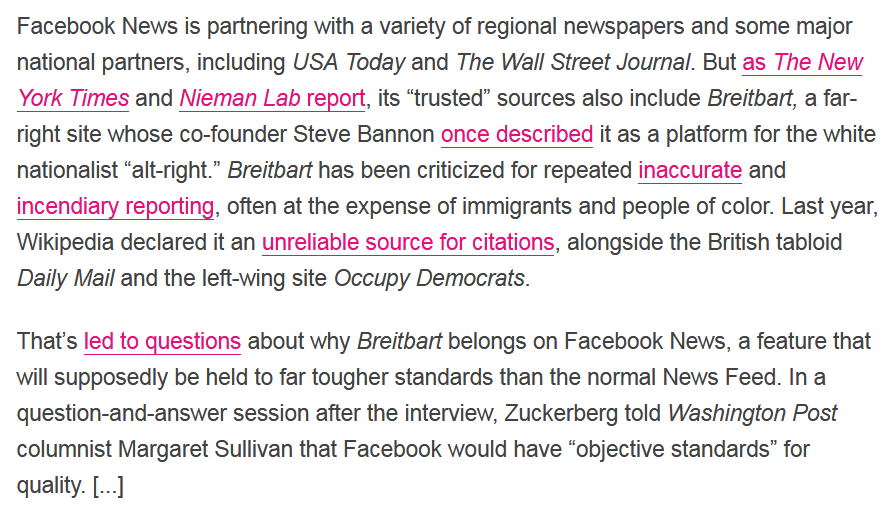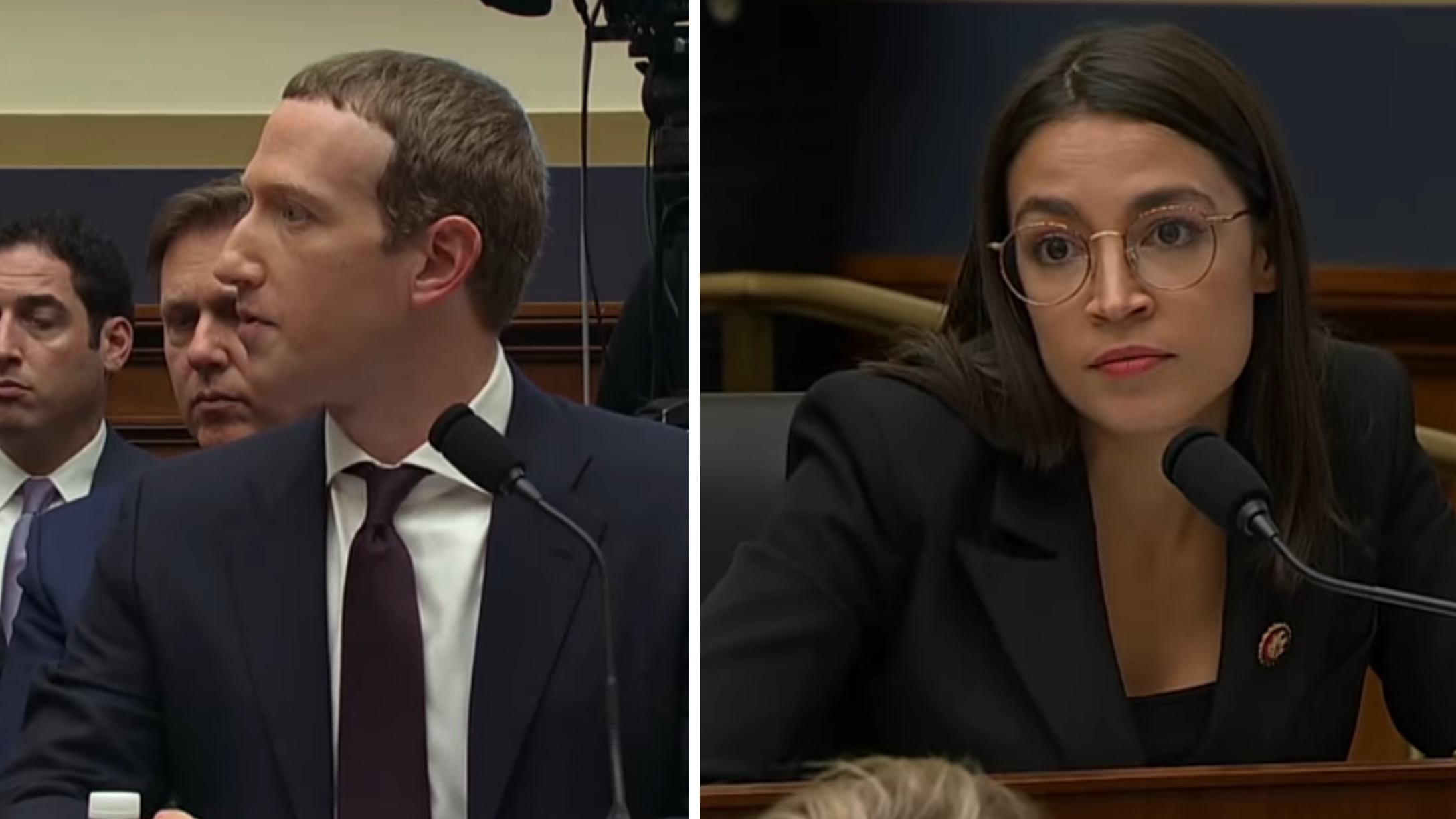There is no federal regulation for truth in political advertising, which may sound weird on the face of it—until you begin to imagine the mischief that could be done with such regulations, if there were any. Deep-pocketed candidates could sue their opponents into the ground by bringing frivolous lawsuits based on such regulations, for example. Cambridge Analytica-style campaigns could be brought to bear on regulatory bodies, as we saw recently in the case of the millions of astroturf comments “posted” (many of them by deceased people) to the FCC website in a bid to influence Net Neutrality regulations.
That’s why media focus on Facebook’s irresponsible handling of these matters—its refusal to “fact-check” political advertising, and its questionable decision to include Breitbart on the list of publishers it feels should be “trusted”—is in entirely the wrong place. A dangerous place, even.
Watching Alexandria Ocasio-Cortez reduce Mark Zuckerberg to a quivering pulp last week was super gratifying. Her questions advanced a long-needed national conversation around Facebook’s role in electoral politics, and in media.
A key moment in their exchange revolved around Facebook’s refusal to fact-check political advertisements.
“Do you see a potential problem here, with the complete lack of fact-checking on political advertisements?” AOC asked Zuckerberg.
“Well, Congresswoman, I think lying is bad, and I think if you were to run an ad that had a lie, that would be bad… that’s different from it being… from it… from, for in our position, the right thing to do to prevent uh, your constituents or people in an election from seeing that you had lied.”
“So, you won’t take down lies or you will take down lies? I think that’s just a pretty simple yes or no.”
(It wasn’t.)
Also this week, the new Facebook News initiative was announced, in which the company will be spending millions on a group of hand-picked “trusted” publishers whose stories will appear on the new dedicated Facebook News tab—according to the Washington Post, more than 200 publishers have signed up so far, and not all of the “trusted” publishers will be paid. Participants include the Post itself, NPR, News Corp (including Fox News) and Breitbart.
The authority to decide whether or not a given statement is true belongs to each person in a free society, not to gatekeepers or middlemen who may arrogate to themselves the right to decide what you can see in advance. It’s nearly impossible to exaggerate how dangerous it is to take this power away from individuals. This is the very thing that makes a person politically and socially free: Freedom is the power to decide for yourself what is true. Not only what is right, or just, but what is or is not true.
Aside from this, no sane person could give a tinker’s damn what Mark Zuckerberg thinks about journalistic ethics. He is a liar and a charlatan who has no business deciding for anyone what they should see, hear or read.
And clearly nobody, including Facebook, should be “trusting” Breitbart, as Adi Robertson explained in The Verge.

But what Robertson and others are missing is that Facebook shouldn’t be assigning “trusted” status to the Washington Post, either. That decision is solely for readers to make for themselves. By giving Facebook the power to create such a list, in exchange for money, even a lot of money, publishers are themselves vouching for Facebook—promoting to the public the message that Facebook itself should be “trusted.”
They’re taking money to give Facebook cover, and Facebook is a company of really legendary mendacity. Zuckerberg got his start by saying of the fellow Harvard students who’d shared their personal information with him, “they trust me, dumb fucks,” the one and only time I think I’ve ever agreed with him.
He followed that up by ripping off his seed investor.
More than 250 of Facebook’s own employees yesterday signed a letter in which they expressed disapproval of their company’s policies with respect to political advertising. They, too, are barking up the wrong epistemological tree. It’s good that the cracks are starting to show at Facebook, but these employees’ solutions are little better than Zuckerberg’s (it is a good idea for them to put a cap on each candidate’s political spend on advertising, for sure.)
The problem is not that Facebook is doing this wrong—e.g. by including Breitbart on their “trusted” list—as Robertson, Casey Newton and others have written. The problem is that they should not be doing it at all.
Facebook needs to be broken up (at minimum) as a first step in getting media control out of the hands of platform monopolists. Until then, Facebook needs to be made to stop carrying political advertising of any kind.
Quit Facebook, also, that will help.






